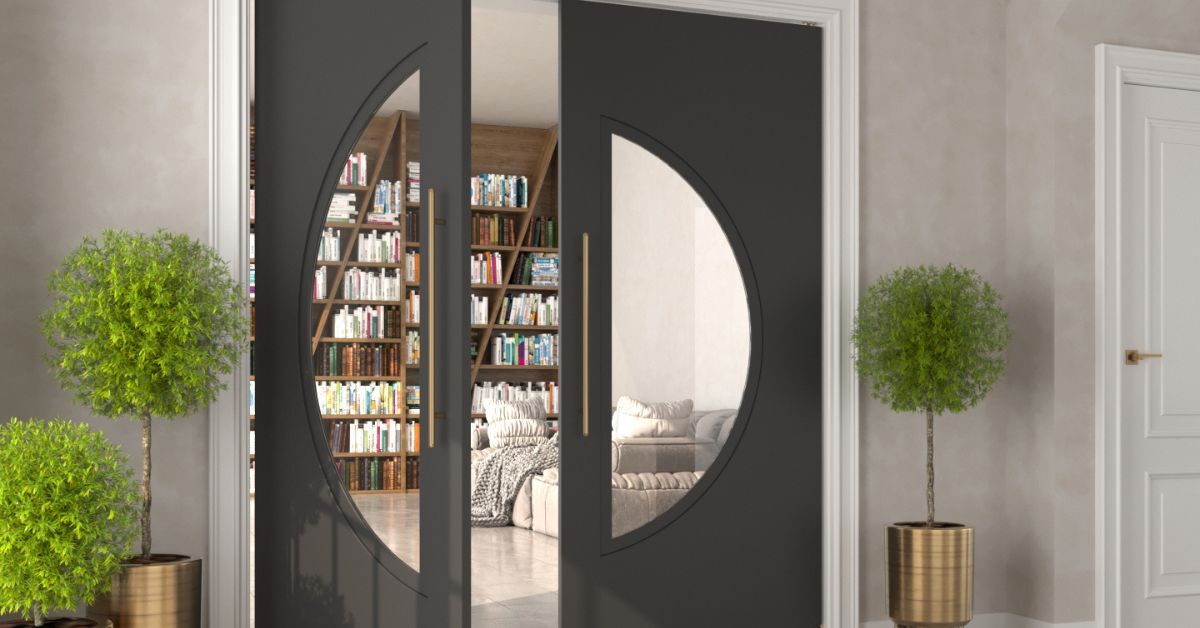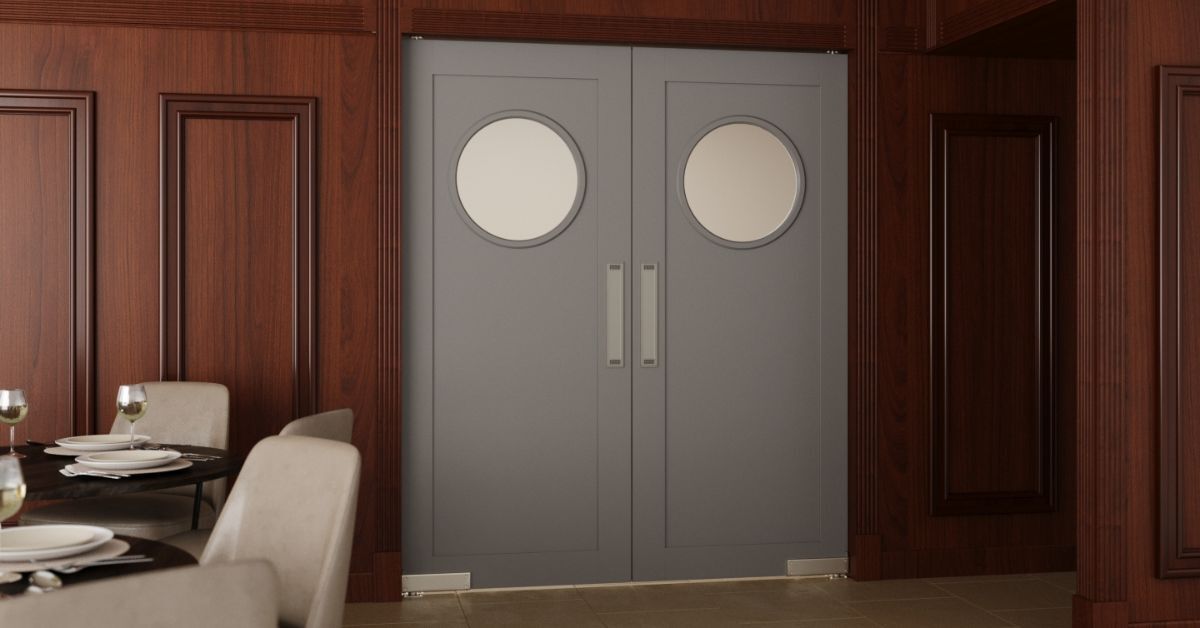
What Is the Best Type of Glass for Commercial Doors?
Selecting the right glass for your commercial doors is a significant decision that shapes not only the appearance of your establishment but also its safety, security, and energy efficiency. Business owners and property managers must weigh several considerations, from safety requirements to aesthetic preferences. Multiple glass options are available, each tailored to specific industry needs, regulatory codes, and functional objectives. This comprehensive guide provides an in-depth look at the best types of glass for commercial doors so you can make informed selections for your projects.
The Role of Glass in Commercial Doors
Commercial doors serve crucial functions well beyond mere entry and exit. They must withstand frequent use, complement a building’s design, and comply with strict building codes. The type of glass selected for these doors influences their performance and visual impact. Transparent, frosted, patterned and tinted commercial glass doors are commonly found in storefronts, offices, restaurants, schools, and medical facilities.
Choosing glass specifically formulated for commercial settings is essential for several reasons. Safety ranks at the top, as large glass surfaces need enhanced strength to protect against impact and accident risks. Energy efficiency is another priority due to the size of commercial doors and their potential extended exposure to environmental conditions. Aesthetic versatility, acoustic considerations, and privacy requirements also play a part in determining the optimal type of glass.
Key Factors When Selecting Glass for Commercial Doors
Several critical factors come into play when assessing the best type of glass for commercial doors. Understanding these elements ensures your selection supports your business’s needs while remaining compliant with applicable standards.
Safety is paramount for commercial spaces. The correct glass should resist shattering upon impact, reducing injury risks to staff and patrons. Durability also matters, especially in high-traffic settings like retail stores or eateries that use swinging restaurant doors.
Aesthetics significantly influence how your business is perceived. Frosted or tinted glass can project a sense of modernity and provide valuable privacy. Energy efficiency contributes directly to cost savings, with some glass types reducing heat gain and loss, leading to lower utility bills. Finally, sound control is often a requirement in bustling settings where minimizing noise can enhance productivity or customer experience.

Tempered Glass for Commercial Door Applications
Tempered glass is a type of safety glass and a top choice for commercial doors. Created by heating glass to a high temperature then cooling it rapidly, it is much stronger than standard annealed glass. If broken, it shatters into small, harmless pieces instead of sharp shards, making it ideal for high-traffic areas. In fact, many building codes require tempered glass for doors, partitions, and nearby windows due to its safety features.
Tempered glass is built to withstand daily stresses, temperature changes, and moderate impacts. It also maintains excellent clarity, offering a bright and open look for commercial entrances. Available in clear, frosted, or tinted options, it suits a variety of design needs. However, because it cannot be cut after tempering, it must be prepared to exact specifications before installation.
While other options like laminated or insulated glass are available, tempered glass remains a preferred choice for safety, durability, and style.

Frosted, Tinted, and Patterned Glass for Privacy and Design
While safety and energy efficiency are essential functions of glass, its role in design and privacy is equally important. Commercial spaces—from open storefronts to private office suites—require tailored solutions, and glass can meet these needs with both style and practicality.
In addition to frosted and tinted glass, we offer a range of patterned glass options to enhance both privacy and visual appeal. Each type brings a unique style and function, allowing you to find the perfect balance of light diffusion and privacy for your space.
Textured Glass (P62)
Textured glass features a subtle, patterned surface that gently diffuses light while providing excellent privacy. The P62 texture is a popular choice for both residential and commercial spaces, combining elegance with functionality.
Rain Glass
Rain glass mimics the look of water droplets streaming down a window. This distinctive design adds a calming, natural touch while maintaining a high level of privacy. It’s an ideal option for bathrooms or decorative panels.
Glue Chip Glass
Glue chip glass has a frosted, fern-like pattern that resembles the intricate designs of ice crystals. It’s perfect for adding a decorative yet understated element to windows, doors, or cabinets while gently diffusing light.
Fluted Glass
Fluted glass features vertical grooves that create a sleek, modern look. It allows light to pass through while distorting visibility, making it a great choice for partitions, cabinet doors, and shower enclosures.
These patterned options allow you to customize the visibility and ambience of your space while complementing the overall design. Whether you need enhanced privacy for conference rooms, medical clinics, or administrative offices, or simply want to elevate your glass doors’ aesthetic, our range of glass solutions has you covered.
Laminated Glass for Enhanced Safety and Security
When safety and security are absolute priorities, laminated glass represents another distinguished contender for commercial doors. Laminated glass consists of two or more layers of glass with a clear interlayer (usually polyvinyl butyral, or PVB) sandwiched between them. During manufacturing, these layers are bonded under heat and pressure.
The main strength of laminated glass lies in its ability to hold together upon impact. Even if the glass cracks or is struck forcefully, the interlayer keeps the sheet intact, making it difficult to break through entirely. This quality makes laminated glass a preferred choice in environments where vandalism, forced entry, or hurricane resistance is a concern.
Laminated glass also provides acoustic insulation, reducing outside noise and contributing to quieter indoor spaces. Additionally, laminated glass blocks up to 99 percent of ultraviolet rays, protecting your interior finishes from fading.
Regulatory Considerations and Building Codes
Compliance with local, state, and national building codes is non-negotiable when selecting glass for commercial doors. Codes often stipulate the minimum safety requirements, such as using tempered or laminated glass in certain locations. Regulations may address the required thickness, thermal resistance, and certification marks to guarantee the glass meets safety and performance benchmarks.
Failing to comply can result in delays, fines, or the need to replace non-conforming installations, which can be disruptive and costly. Checking with local authorities and working closely with experienced glass suppliers or door manufacturers ensures each glass door installation is up to code from the outset.
Practical Guidance for Selecting Glass
Choosing the optimal glass begins with evaluating your business’s unique needs. Consider traffic patterns, security risks, climate, privacy demands, visibility requirements, and how much you want the door to contribute to your brand’s visual identity. For example, clear glass offers maximum visibility, frosted glass enhances privacy while still allowing light, and tinted glass can reduce glare and heat from sunlight. Consulting with architects, builders, or glass specialists can clarify which glass types best fit each situation.
Visiting commercial door showrooms and reviewing sample glass finishes can help finalize your decision. Always request documentation or certification from manufacturers to confirm that their products meet your application’s required standards.
Make the Right Choice for Your Business
Selecting the best glass for your commercial doors is a multi-faceted process that directly influences your facility’s safety, style, efficiency, and code compliance. Balancing all relevant factors ensures that your doors protect your investment while presenting a welcoming, professional front to your clients and visitors.
